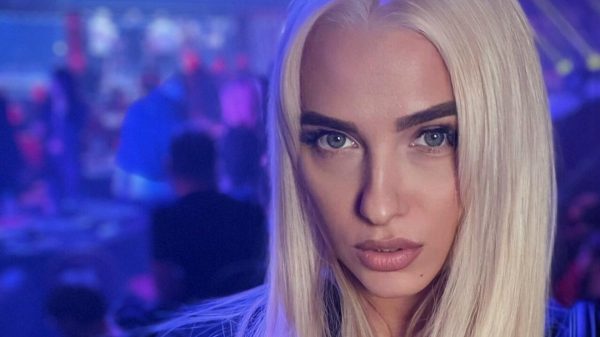
For three years, Vidya tried to find the cause of her son’s recurrent fevers and low cognitive development. When she found out, she was devastated.
Vineeth, 10, has an incurable illness – mucopolysaccharidosis type 2 – that affects his organs. Afflicting just one in a million, the enzyme-replacement medication that can help stop the illness getting any worse costs £100,000 a year, far beyond the reach of even a wealthier Indian parent.
Vidya, who goes by only one name, chanced upon the drug manufacturer’s charitable-access programme that sponsors patients in countries where the healthcare system doesn’t cover costs. So for the past 30 months, a Japanese company has been shipping the drugs for Vidya’s child. “My son’s metabolism has improved incredibly and his heart and liver are back to functioning normally,” says Vidya, who lives in Bengaluru.
Indian boy, seven, found with 526 teeth inside his mouth
Read more
The medication will keep coming for the foreseeable future. But in India up to 96 million people who may be living with more than 7,000 illnesses defined as rare diseases are not so lucky. India has no budget for rare diseases and health insurance companies do not cover them.
Charitable programmes provide for only a few. As of August 2019, Takeda Pharmaceutical Company’s programme has covered 199 patients from 13 countries including India, and Sanofi Genzyme has provided free drugs to more than 100 patients in India in the past 21 years.
Half of rare diseases appear in children, of whom a third will die before they turn five. Only 5% of such diseases have a cure. But with medicines for management, patients can have a better and longer life. “A majority of medication for rare diseases is exorbitantly priced and none is manufactured in India,” says Prasanna Shirol, co-founder of Organisation of Rare Diseases India (ORDI), a non-profit umbrella group.
Shirol consulted more than 40 doctors over seven years before his daughter Nidha was diagnosed as the first Indian patient with Pompe disease in 2007. She has been taking enzyme-replacement therapy sponsored by Sanofi Genzyme since 2008.
Another route is to take part in clinical trials. But Dhara Mamania, whose 10-year-old son Mohin has Duchenne muscular dystrophy (DMD), has been struggling to sign her son up for the past year. “DMD progresses rapidly after 10 years, so I’m really worried about my son’s health and mobility now,” says Mamania, who is based in Mumbai.
‘We took a huge risk’: the Indian firm making more Covid jabs than anyone
Read more
India launched a registry of rare disease patients in 2017 but it is far from complete. Unlike the US, which has economic incentives for pharmaceutical companies under the Orphan Drug Act (to encourage development of drugs for diseases too rare to be worth pursuing otherwise), the Indian government does not offer such provision.
Owing to countless generations of consanguineous and endogamous marriages – within extended families or within the same caste –that raise populations’ vulnerability to genetic disorders, the prevalence of rare diseases may be higher in some Indian ethnic groups. Newborn screening could diagnose many disorders at birth, since 80% of rare diseases are genetic. But barring a few Indian states, it is unavailable in government-run hospitals, where, in 2018, almost 55% of women gave birth.
Shirol says there is a social stigma associated with inherited diseases. “If it runs in their family, some people do not reveal it to their prospective partners, as it may become a hurdle in their own marriage as well as their siblings’. The biggest obstacle is a lack of awareness, even among physicians,” he says.
“Paediatricians don’t get to see many rare-disease patients in their regular work, so it is not easy for them to recognise the disease,” says Dr Meenakshi Bhat, a consultant clinical geneticist in Bengaluru. For a long time, genetic testing was not available to confirm clinical diagnoses, so treatment could not be pursued.

Bhat says India has a shortage of clinical geneticists, but in the past decade she has seen the environment for rare diseases changing. Next-generation sequencing – a blood test that can diagnose a human’s entire genetic makeup – is now offered in some private laboratories, shortening the journey to diagnosis.
“An allocation of a suitable budget for treatment may be under way in the national policy for rare diseases, expected next month,” says Shirol.
But given the prohibitive costs, it may not be enough. Growing numbers of patients’ advocacy organisations have been able to get government funding for a few individuals and are now spearheading research, as only drugs developed in India would be affordable.
In 2019, regulatory guidelines for gene therapy were introduced in India, 30 years after the first successful clinical trial in the US. “The framework may be a gamechanger, paving the way for scientists to develop products and conduct human trials for their research,” says Dr Arkasubhra Ghosh, director of GROW Research Laboratory, which is conducting one of the first studies for gene therapy for DMD, with initial funding from Parent Project Muscular Dystrophy.
Mamania, a contributor to the fund, is waiting to sign up for clinical trials likely to begin early next year. “If this gene therapy works, my son will be walking throughout his life,” she says.






















































Свежие комментарии